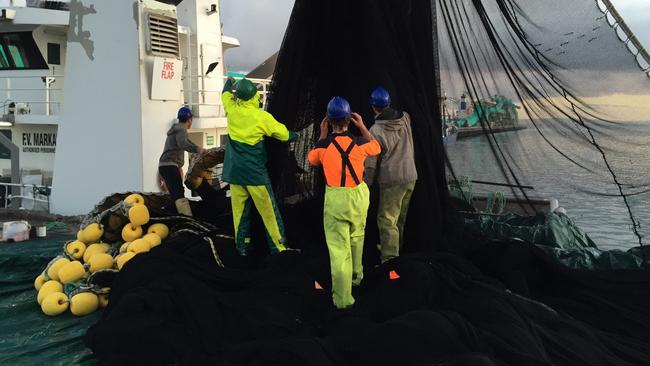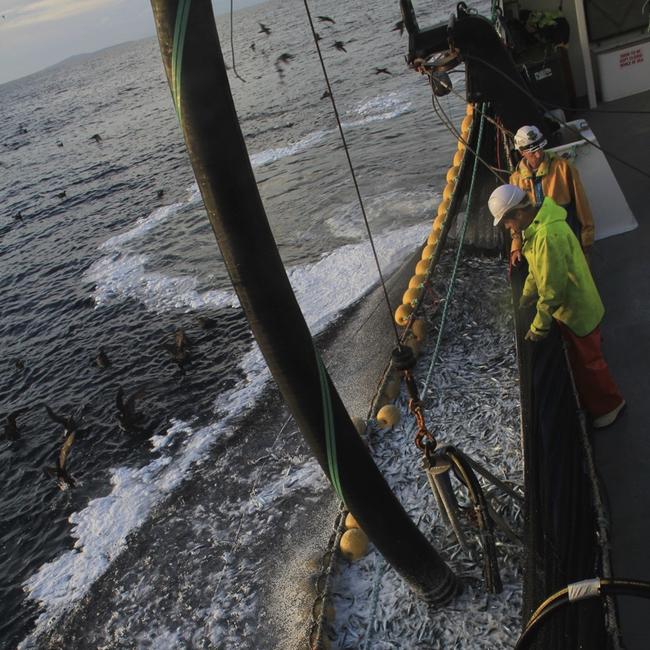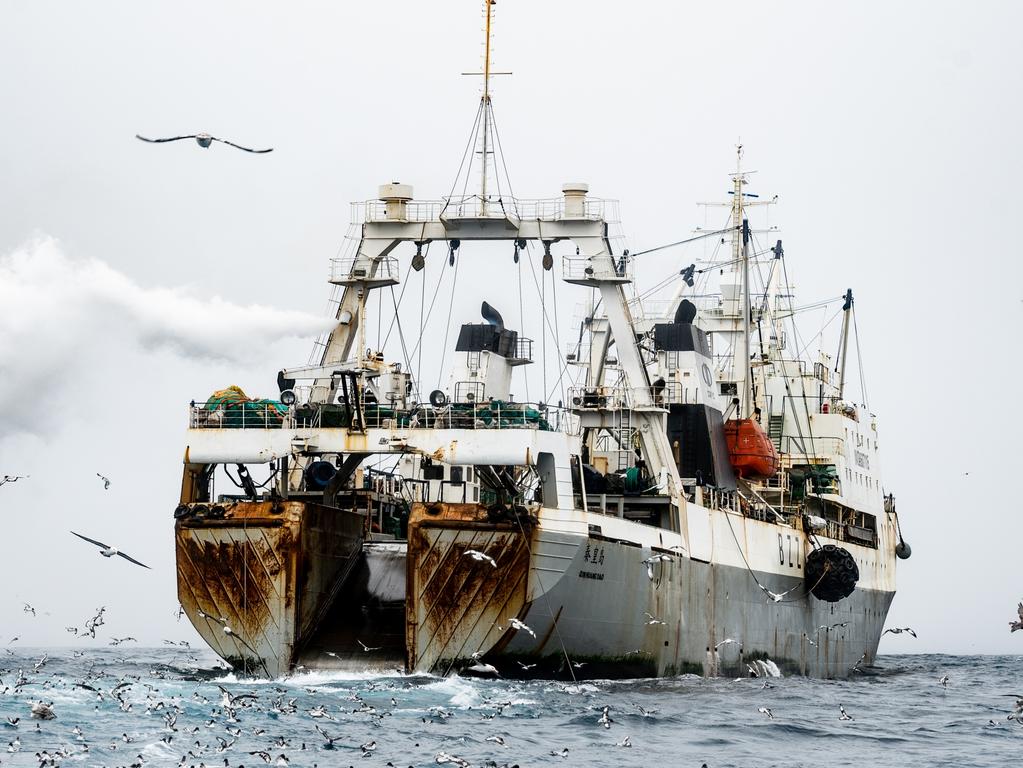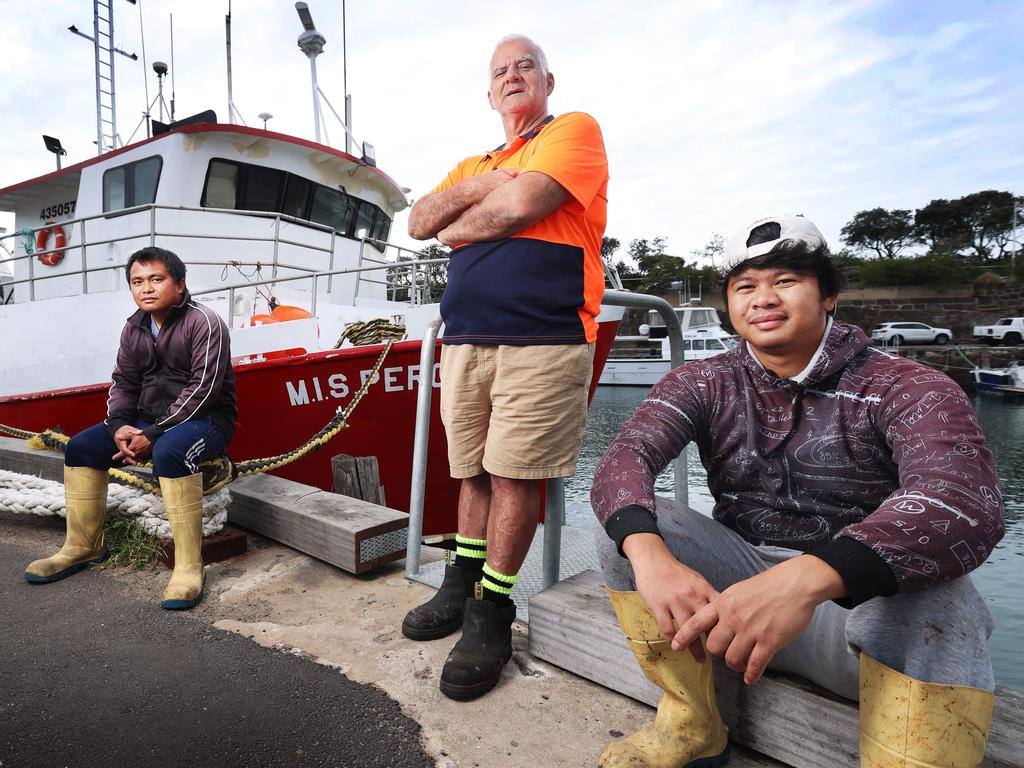Recreational fishers salty over plans for major sardine fishery
A newly discovered, vast sardine resource could be a new sustainable fishery for Australia, but some are getting salty over dolphin deaths.

Recreational fishers – a politically influential group across key marginal seats – are mobilising to address “concern and nervousness” about plans to exploit a vast sardine resource in Australia’s south-eastern waters.
The Tasmanian government is creating Australia’s newest fishery after research estimated 210,000 tonnes of spawning sardine biomass, mostly in Bass Strait and off the western Victorian coast.
However, opposition is growing, not just from conservationists, with recreational fishers concerned about potential impacts on popular game fish that might partly rely on sardines, such as tuna and kingfish.
The super-trawler debacle of 2012 – when the Gillard government banned factory ships in response to an outcry – suggests recreational fishers can be a potent political force.
The Tasmanian Association for Recreational Fishing told The Weekend Australian it was forming a dedicated group to respond to the plans, while game fishing bodies nationally are understood to be watching closely.
“There is some concern and nervousness amongst recreational fishers, largely driven by a lack of detailed information or answers to their questions,” said TARFish chief executive Jane Gallichan.
“It will be incredibly important that any new fishery is trialled with the highest level of precaution and recreational fishers are assured that their fishing won’t be impacted.
“We’re establishing a reference group to guide how our organisation participates and responds as more information becomes available.”
While “open-minded”, TARFish was “cautious” and wanted to see more detail about what was proposed.
The fishery, which scientists have suggested be limited to an annual catch of less than 15 per cent of stocks – half the 33 per cent deemed sustainable – will also need to address the issue of dolphins drowning in nets.

State Industry and Resources Minister Eric Abetz has promised the fishery will use purse seining net methods, rather than trawling.
These nets provide more scope for fishers to release trapped dolphins, but mortalities have occurred in the established South Australian sardine fishery, based in Port Lincoln.
Data on reported dolphin deaths in that fishery, which uses purse seining, shows a peak of 24 mortalities in 2005. Since then, reported mortalities have ranged from nil to 16 a year, including two in 2023 and six in 2022.
In 2024, the SA fishery withdrew from top-flight Marine Stewardship Council certification after auditors expressed a lack of sufficient confidence in a strategy to manage impacts on dolphins.
Supporters of the SA fishery, which otherwise received positive assessment from MSC, point out that all food production carries risks of environmental impacts and that fees played a role in the MSC withdrawal.
They said permit conditions required fishers to find and release all dolphins trapped in nets and any mortalities were at “very low” numbers.
Interactions with dolphins were likely to reduce further due to dolphin deterrent devices being trialled, they said.
Mr Abetz did not answer questions about what quota and dolphin-protection measures would be adopted for the fishery.
However, he committed to “best practices” and “careful monitoring”, as well as “precautionary catch limits that are informed by current and independent research”.
More Coverage
‘Holy grail’ fish discovery comes with one big catch






To join the conversation, please log in. Don't have an account? Register
Join the conversation, you are commenting as Logout